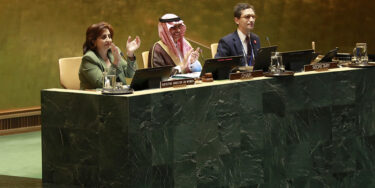HRC 35: Strong concerns on the resolution on the protection of the family
20.06.17
In Vienna, States reaffirmed their commitment to the Universal Declaration of Human Rights. In that vein, we would like to express our strong concerns about the draft resolution on the protection of the family [A/HRC/35/L.21 on “Protection of the Family: Role of the family in supporting the protection and promotion of human rights of older persons.”]
Together with NGOs working on the rights of older persons, we highlight that this resolution:
- reinforces ageist stereotypes,
- fails to adequately recognize older persons as individual rightsholders and
- falls far short of States’ obligations to respect, protect and fulfil their rights.
We reject its limited focus on ‘protection and assistance’ and failure to reflect research that the family is the primary site of violence against older persons. [We also note that the resolution ignores the work of the Open-ended Working Group on Ageing and ignores the conclusions of the Independent Expert on the enjoyment of all human rights by older persons.]
This resolution is one of a series of Protection of the Family resolutions that aim to subvert the universality of international human rights; stifle diversity and autonomy; and to shift rights protections away from family members, including older persons, into the institution of ‘the family’. We are concerned that the resolution attempts to instrumentalize older persons and their rights towards these ends.
We are also concerned by the resolution’s failure to recognize that various forms of family exist everywhere, and its stating that “the family plays a crucial role in the preservation of cultural identity, traditions, morals, heritage and the values system of society,” without recognising that families can perpetuate discriminatory and harmful values and traditions, particularly against older women. Culture and tradition are not static or homogeneous; we all have equal human rights to participate in and create culture. [When powerful institutions attempt to claim ownership over, or enforce ‘authentic’ interpretations of culture, tradition, or values, individuals – particularly those who are marginalized or vulnerable – are denied their fundamental rights.
For these reasons, we do not believe this draft resolution is in line with human rights principles and standards and therefore call on the Core Group to withdraw it or for members of the Human Rights Council to amend or vote against it.



